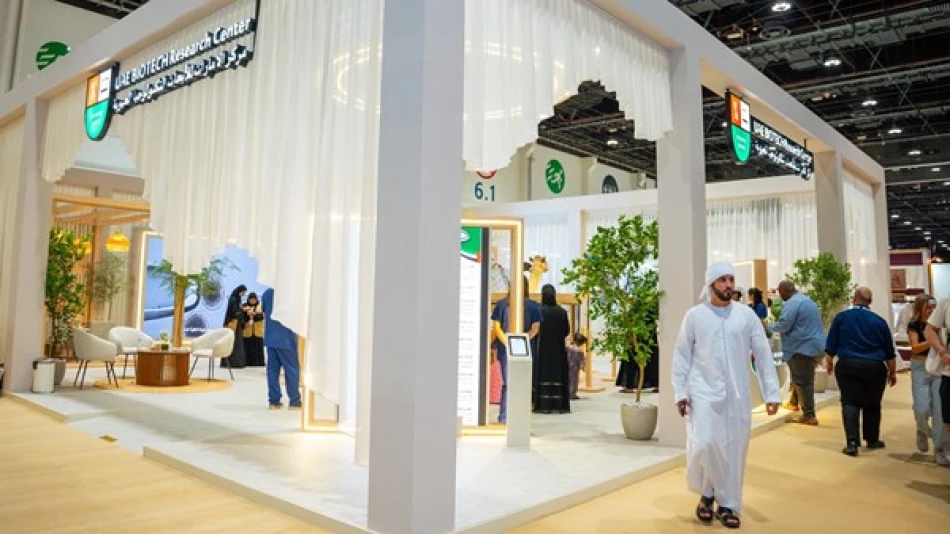
Cutting-Edge Biotech Center Joins Abu Dhabi's Premier Hunting and Equestrian Showcase
UAE Biotech Center Showcases Cutting-Edge Animal Cloning Technology at Abu Dhabi Hunting Exhibition
The UAE Center for Biotechnology Research is making its debut at the Abu Dhabi International Hunting and Equestrian Exhibition 2025, presenting groundbreaking innovations in animal cloning, genomic preservation, and embryo transfer. This strategic showcase underscores the Emirates' commitment to preserving its animal heritage through advanced biotechnology while positioning itself as a regional leader in genetic conservation.
Biotechnology Meets Tradition
Dr. Fatima Al Kaabi, Chairman of the UAE Center for Biotechnology Research, emphasized that the center's first-time participation aims to demonstrate their latest achievements in cloning, genomic preservation, and biotechnology development. The exhibition serves as a platform to bridge traditional animal husbandry with cutting-edge scientific innovation.
The center's interactive pavilion features preserved tissue and cell samples, detailed explanations of embryo transfer mechanisms, and precise cloning techniques. Visitors can explore research and development programs executed in collaboration with local and international partners, highlighting the UAE's growing scientific diplomacy in biotechnology.
Strategic Focus on Heritage Animals
The center specializes in cloning camels and cattle while preserving rare breeds—animals deeply embedded in Emirati cultural identity. This focus reflects a broader regional trend where Gulf nations are investing heavily in preserving their cultural and biological heritage through modern technology.
The Biobank Initiative
Central to the center's operations is its biobank, which serves as a strategic genetic repository for the region. This facility stores genetic material from various species, creating a comprehensive database that could prove invaluable for future conservation efforts and agricultural development.
Regional and Global Implications
The UAE's investment in biotechnology mirrors similar initiatives across the Gulf Cooperation Council countries, where governments are diversifying their economies beyond oil revenues. Saudi Arabia's NEOM project includes significant biotechnology components, while Qatar has invested heavily in agricultural biotechnology research.
Unlike Western approaches that often focus on commercial applications, the UAE's strategy emphasizes cultural preservation alongside scientific advancement. This dual approach could attract international partnerships from institutions seeking to combine traditional knowledge with modern biotechnology.
Market Opportunities and Challenges
The exhibition represents more than scientific showcase—it's a business development opportunity. The center seeks collaborations with research institutions, specialized farms, and stakeholders interested in preserving purebred camels and horses. These partnerships could generate significant revenue streams while advancing conservation goals.
The timing is strategic, as global demand for sustainable livestock breeding solutions continues to grow. Climate change pressures and food security concerns are driving increased investment in biotechnology solutions for animal husbandry, particularly in arid regions where traditional breeding faces environmental challenges.
Infrastructure and Capabilities
Based in Abu Dhabi, the center operates state-of-the-art laboratories specializing in cloning, genetic engineering, genomic preservation, and veterinary research. This infrastructure positions the UAE as a regional hub for biotechnology research, potentially attracting international researchers and companies seeking Middle East partnerships.
The center's comprehensive approach—combining research, preservation, and practical application—suggests a mature understanding of biotechnology's commercial and cultural value. This integrated model could serve as a template for other developing nations seeking to preserve their biological heritage while building modern scientific capabilities.
Most Viewed News

 Layla Al Mansoori
Layla Al Mansoori






